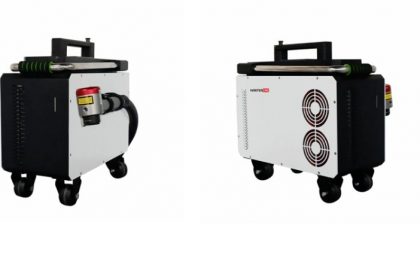Tesla announced today that it was recalling 9,100 Model X SUVs in the United States due to a potential roof trim separation.
TakeAway Points:
- Tesla said that it had recalled 9,100 Model X sports utility vehicles in the United States due to a potential roof trim separation. This is the second recall related to the same problem since 2020.
- The company will test the adhesion of the roof trim and reattach the trim pieces as necessary at no cost to the owners of the vehicles.
- A federal judge in California on Wednesday dismissed a lawsuit accusing social media platform X of forcing out workers with disabilities after Elon Musk took over the company and barred employees from working remotely.
Tesla recalled 9,100 Model X sports utility vehicles
This is the company’s second recall related to the same problem since 2020.
Front and center roof cosmetic trim pieces may be adhered without primer and could separate from the vehicle, creating a road hazard and increasing the risk of a crash, the National Highway Traffic Safety Administration said.
The recall covers 2016 model-year Model X SUVs. Tesla said a change in process had been made at the supplier in July 2016 to prevent the issue in later models.
The company will test the adhesion of the roof trim and reattach the trim pieces as necessary at no cost to the owners of the vehicles.
Since 2022, Tesla has been studying reports of issues involving vehicles that had undergone the recall remedy and conducting ageing tests, including heat and humidity, it said on Wednesday.
It concluded that the 2020 recall remedy was not robust enough to detect cosmetic roof trim pieces that may detach due to a lack of primer.
Tesla said it is aware of about 170 reports and claims that may be related to the issue, but said it has no reports of crashes or injuries tied to the recall issues.
This marks a rare physical recall for the Austin, Texas-based automaker, which usually fixes issues through over-the-air software updates.
Tesla recalled nearly 2.6 million vehicles due to safety concerns in the first six months of the year, only behind Ford Motor, which has recalled about 3.6 million vehicles in the U.S., according to recall management platform developer Bizzycar.
Musk’s X remote work ban defeats the charge of disability bias
Meanwhile, a federal judge in California dismissed a complaint against social media platform X, alleging that the firm forced out disabled workers after Elon Musk took over and forbade remote work.
U.S. District Judge Araceli Martinez-Olguin in San Francisco said the plaintiff in the 2022 proposed class action, Dmitry Borodaenko, failed to show how Musk’s mandate to return to the office specifically impacted employees with disabilities. The judge gave him four weeks to file an amended lawsuit, including more detailed claims.
Borodaenko, a former engineering manager and cancer survivor, claims he was fired shortly after Musk acquired X, then called Twitter, for refusing to report to the office during the COVID-19 pandemic. The lawsuit claims X violated a federal law requiring employers to accommodate workers’ disabilities.
Musk said in a memo to the company’s staff in November 2022 that employees should be prepared to work “long hours at high intensity” or quit, and later tweeted that it was “morally wrong” to work from home.
Martinez-Olguin said on Wednesday that the ban on remote work did not amount to disability discrimination.
“Borodaenko’s theory improperly relies on the assumption that all employees with disabilities necessarily require remote work as a reasonable accommodation,” Martinez-Olguin wrote.
X responded to multiple requests for comment with emails stating, “busy now, please check back later.”
The lawsuit is one of several that former employees filed in the months following Musk’s $44 billion acquisition of the company and the ensuing layoffs of about 75% of its workforce.
Other cases accuse Twitter of not giving employees and contractors advance notice of layoffs, failing to pay billions of dollars in promised severance, and disproportionately targeting women and older workers for job cuts. X has denied wrongdoing.
Some of those cases have been dismissed, prompting appeals from the plaintiffs that are pending.








